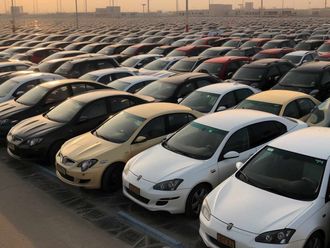Tokyo: Japan's economy isn't quite as weak as first thought, but it still needs help, the government said yesterday as it unveiled details of a new $11 billion (Dh40.37 billion) stimulus package.
Revised figures showed that gross domestic product expanded at an annualised rate of 1.5 per cent in the April-June period, an improvement on the meager 0.4 per cent reported in last month's preliminary report.
That report had indicated a barely growing economy and triggered widespread concern about the health of Japan's export-led recovery. The latest numbers, which put Japan on par with US growth rates, are better but not great. Growth has fallen sharply since the 5 per cent annualised rate recorded in the first quarter, and the future looks increasingly murky.
It was at least enough to buoy investor sentiment for the day. The Nikkei 225 stock average led regional gains, finishing up 140.78 points, or 1.6 per cent, at 9,239.17. The improved growth figure stemmed from higher capital spending by companies.
Corporate investment expanded 1.5 per cent, compared with 0.5 per cent growth in the Cabinet Office's preliminary figures.
The government, however, moved quickly to announce its latest plan to fend off worrying head winds. Prime Minister Naoto Kan's Cabinet approved new stimulus measures worth 915 billion yen. The previously announced package aims to boost domestic consumption, fight deflation and tackle fallout from a strong yen, which hit a new 15-year high this week.
Exports
A strong yen is painful for the country's vital exporters because it reduces the value of repatriated profits and makes their products less competitive overseas. Toyota Motor Corp. has said that every 1-yen climb versus the dollar saps 30 billion yen from operating profit.
The fresh injection sets Japan apart from the rest of the developed world, which is winding down stimulus spending even amid signs of a cooling global economy. Since Kan revealed his plans last month, the package has been criticised by analysts as too little to make any meaningful impact.
The government says the package will lead to 200,000 new jobs and raise GDP by about 0.3 per cent.
About half the money will go toward extending consumer subsidy programmes for energy efficient homes and appliances.
Other measures include job support programmes for new graduates and steps to convince companies to keep jobs in Japan instead of moving factories overseas because of the strong yen.












